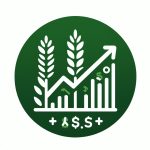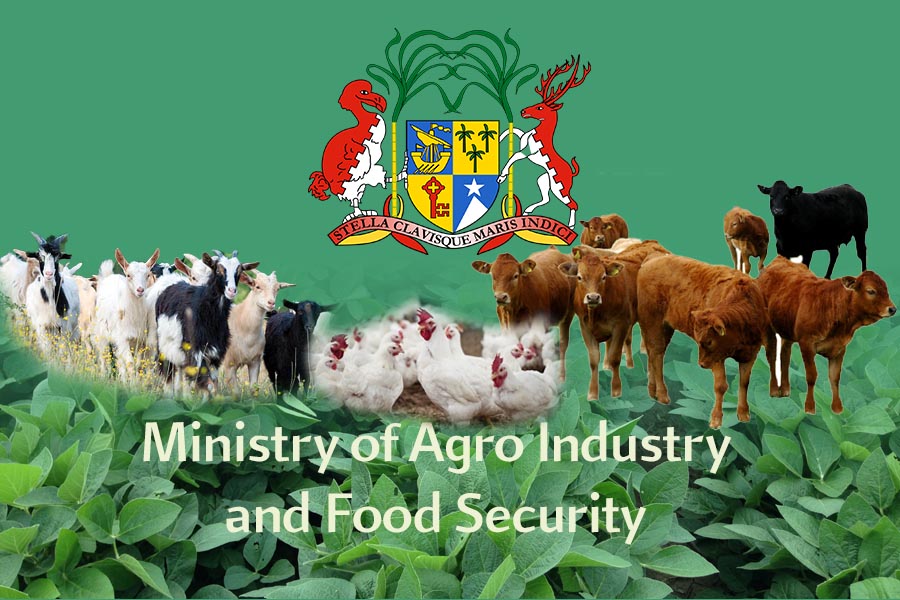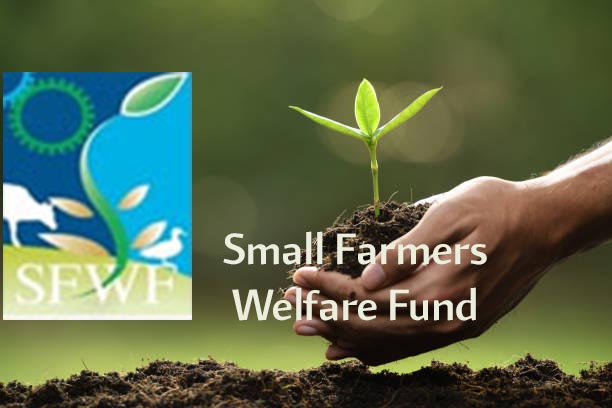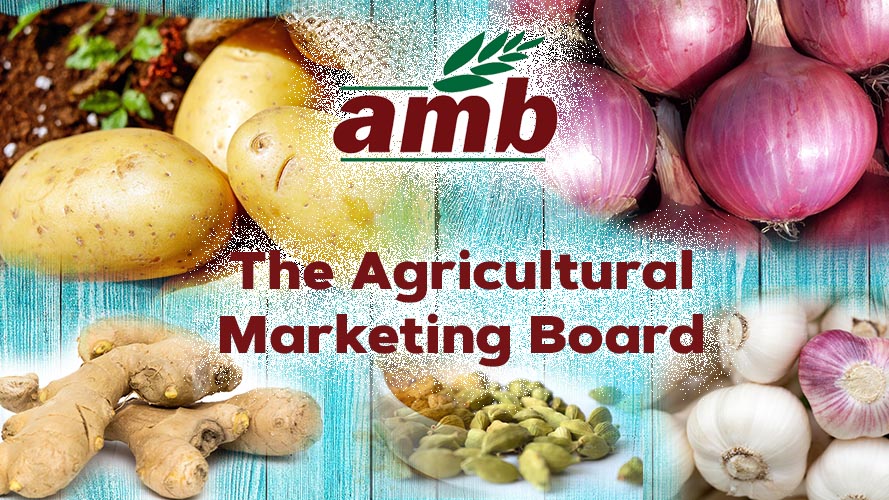Contact Us – +230 4651011; 4663885 +230 4653344; 4661090 farei@intnet.mu Business Registration No.: S18000004

Food and Agricultural Research and Extension Institute
Helping to steer and promote the sustainable development of the National Agri-food System through the efficient and effective application of Research, Development and Training (RDT).

e-News
Current Season advices
and Agricultural Events

Schemes
Assistance and Promoting
Technology Applications

Communique
Announcements, Opportunities,
Events and Alerts
Mission
To support and implement priority RDT programmes and projects and appropriate technologies for food security and to enhance competitiveness, sustainability and stakeholder equity across the agri-food value chains.
Overview
The Crop Research Department has the responsibility to support and oversee development in the non-sugar crop sector and ensure that the needs of the sector is addressed through research and adoption of new technologies. The Department through its division conduct adaptive research to address the needs of the nation. It also applies relevant knowledge as well as techniques gained from basic research elsewhere to adapt technologies to suit local conditions. It comprises six research divisions namely, Agronomy, Vegetable and Ornamental, Fruit, Resource Management, Entomology and Plant Pathology.
Mission
To conduct applied and adaptive cost effective research for the introduction and development of novel technologies, to increase crop production and improve crop quality to enhance food security in a sustainable manner.
Objectives
Develop cost effective technologies
Introduce and develop new varieties
Maintain germplasm and promote under utilised crop species
Develop best agricultural practices for sustainable production
Optimise use of agricultural resources
Develop protocols, norms and standards for minimally processed and preserved products and fruit juices.
Develop Integrated Plant Protection Management strategies
Increase production of strategic crops for enhanced food security
Overview
The Livestock Research Department comprises the Animal Production and Animal Health Divisions. It has the mandate to conduct strategic research in the livestock and poultry sectors and adapts relevant knowledge and techniques to local conditions. The department fosters close interaction among scientists, farmers and extension staff to ensure that research activities are planned in a multidisciplinary and participative manner.
Mission
To undertake applied and adaptive cost effective research for development, to boost the livestock sector in order to increase milk, meat, poultry and derived products and to enhance food security in a sustainable way.
Objectives
To develop new technologies and improve farming practices through applied and adaptive research aiming at increasing farm production and productivity in a sustainable way
To support livestock farmers in value addition and marketing of their products as a profitable enterprise
To assist farmers in the conception and implementation of livestock and poultry projects
Livestock Strategies
The scope of research and development programme is to:
Develop technologies/farming practices through cost-effective research in nutrition, breeding, reproduction, fodder/pasture and waste management to increase farm production and productivity
Develop feeding strategies for livestock using locally available feed resources
Conserve farm animal genetic resources for utilization in breeding programmes
Professionalise and modernise the sector through efficient use of resources
Develop and promote sustainable livestock production and sensitise on the concept of Clean, Green and Ethical (CGE) animal production
Linkages
International Collaboration
Linkages and collaboration with other international institutions have been built and are continuously maintained. These include: The International Atomic Energy Agency (IAEA) for the implementation of projects with peaceful applications of nuclear technology, the International Foundation for Science, the Food and Agricultural Organisation (FAO), etc.
National collaboration
The Livestock Research Department very often solicits support and cooperation from other stakeholders in Mauritius for optimizing efforts and resources for the benefits of the farming community namely the Agricultural Services and Forestry Service of the Ministry of Agro-Industry and Food Security, the Mauritius Meat Producers Association, the Mauritius Meat Authority, the Mauritius Prisons Service, the Food Security Fund, the Empowerment Foundation, the Global Environment Facility Small Grants Programme – UNDP, Aadicon Biotechnologies Ltd., livestock farmers cooperative societies, etc.
Research Facilities
Research Station
The department manages one livestock research station, the Curepipe Livestock Research Station CLRS), located at Les Casernes, Curepipe. It provides support in implementing research on various themes related to livestock production and its facilities are used to train livestock farmers and entrepreneurs. It covers an area of 8 hectares and comprises production units for dairy cattle, goats, sheep and rabbits. It also has a fodder unit which includes a germplasm collection of fodder species and plots for testing of local and introduced fodder species.
Laboratory Facilities
The department has laboratory facilities for research on ruminant nutrition, milk processing and production of parasitoids for the biological control of stable flies.
Ruminant Laboratory Facility: For the determination of dry matter degradability in order to assess the efficiency of utilization of various feeds by ruminants and for determination of pH, electrical conductivity, dry matter, bulk density, …
Milk Processing Facility: For developing protocols of dairy products, training and demonstration on milk processing and promote agri-business opportunities.
Parasitoid Production Unit: For rearing parasitoids (Trichopria sp.) for the biological control of stable fly (Stomoxys nigra). Some 125,000 parasitoids are released weekly in sugar cane fields around deer chassées and farms.
Overview
The Extension and Training Department ensures technology transfer to the farming community and agro entrepreneurs in the horticultural sector (vegetables, fruits, ornamentals) and livestock sector (cattle, poultry, goat, sheep, deer, rabbit and pig). The main activities include provision of technical advisory services, training and information dissemination, facilitating access to government incentives, field data collection on production, socio-economic and agronomic issues among others.
The services are delivered through three divisions:
- Crop Extension Division
- Livestock Extension Division
- Information and Training Division
The Department is under the responsibility of the Assistant Director (Extension and Training) with a Principal Extension Officer heading each Division and an Agricultural Coordinator for administration and logistics.
Mission
To provide a cost effective technical advisory and training service to the farming community for sustainable development of the agricultural sector (vegetables, fruits, ornamentals and livestock).
Key Objectives
- Professionalise the sector by improving farmers’ knowledge and skills through technical advisory services and training;
- Improve farm productivity, farmers’ income and welfare;
- Modernise the sector through adoption of new technologies;
- Promote value addition to agricultural produce;
- Enhance food security;
- Improve linkages among farmer, extension, research and other stakeholders; and
- Facilitate access to government incentives and services.
RESEARCH PROJECTS

Crop Research
Research Programmes & Projects undertaken by Crop Divisions

Livestock Research
Research Programmes & Projects undertaken by Livestock Division
Services Offered to Farmers
Recent Information

Publications
Printed and Digital Materials

Publication
Documents published by FAREI including Booklets, Leaflets, Recommendation Sheets ...

Training
Farmers Training

Training
Training of Farmers for adoption of new technologies, updating cultural practices, implementing GAP...
Why FAREI...
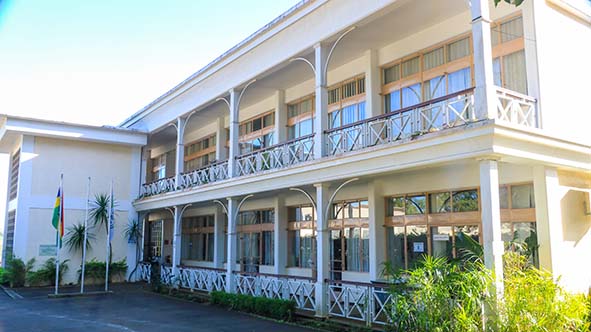
FAREI is mandated to carry out farmer oriented applied research for development and to support the farming community for non-sugar crop and livestock production through its Extension Service. With a pool of professionals, it is also responsible to implement Government policies, dissemination of new technologies and revenue generation for farmers as priority. The organisation also ensures that farmers are empowered to maintain food crop production round the year to ensure a constant supply on the local market and to reduce imports as far as possible…
FAREI Head Office
FAREI Head Office,
Reduit
Tel: +(230) 465 1011; 466 3885
Fax: +(230) 465 3344; 466 1090
email: farei@intnet.mu
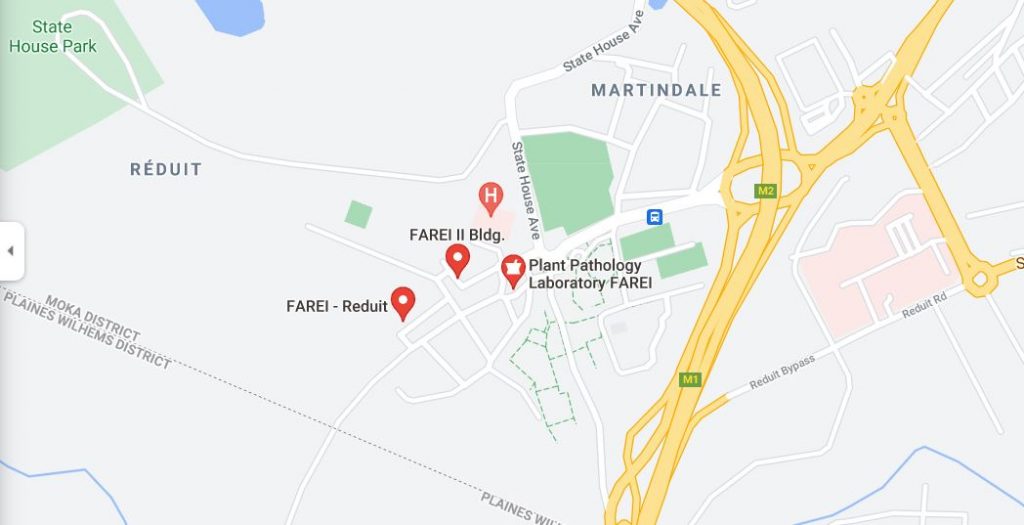
Privacy Policy
